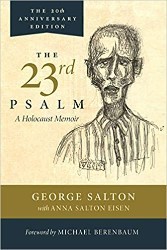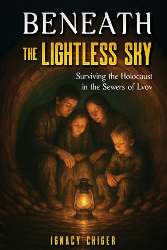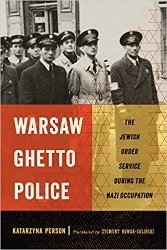Marina Jarre (1925−2016) was born in Latvia to a secular Jewish father and an Italian Protestant mother. When their marriage dissolved in acrimony, her mother spirited ten-year-old Marina and her sister out of Latvia to Italy, where they lived through World War II. Their father, Samuel Gersoni, remained in Latvia and, following Nazi conquest in 1941, perished there alongside most of the country’s Jews. After the war, Jarre became a wife, mother, and teacher, and, in later years, an author. Until recently, her work has not been well-known either in or outside Italy. However, in 2021, translator Ann Goldstein — who has done so much to bring modern Italian writers to American audiences — produced a rendering of Jarre’s 1987 memoir, Distant Fathers (I padri lontani), which introduced American readers to her work at long last. Return to Latvia, which Jarre wrote in 2002 following a two-week trip to Latvia with one of her adult sons, represents her final reckoning with the father she hardly knew.
The title of Distant Fathers can be understood in the general sense of “ancestors,” for the book is as much about Jarre’s relationship with her mother and her Protestant forebears as it is about her lack of relationship with her father. Hardly a conventional memoir, it moves from scene to scene and theme to theme in an associative collage.
In Return to Latvia, Jarre uses some of the same formal techniques, recounting fragments of the journey she reluctantly undertook in her seventies and the childhood memories those fragments evoked. Some of her narrative has a comical overtone: she and her son blunder about Riga, trying to locate her childhood milieu. But the book builds in intensity as Jarre, after returning home to Italy, combs through documentary material and traces the history of the Gersoni family and the Jews of Latvia. As a result, she manages to piece together a history of her Jewish ancestors and to uncover relationships of which she was unaware. Her quest culminates with a reconstruction of the tragic events of November and December of 1941, when the majority of the Jewish population of Latvia was murdered by the SS and Latvian death squads. The book ends with a polemical account of how, as of the early 2000s, Latvia had not yet come to terms with its complicity in the Holocaust. Ann Goldstein’s lucid translation ends with Jarre and her son inadvertently coming upon the spot in the Rumbula forest, near Riga, where her father and many of the Jews of Latvia were massacred. There, at a memorial stone, in a moment both tender and haunting, Jarre paradoxically finds her father most alive in her memory.





